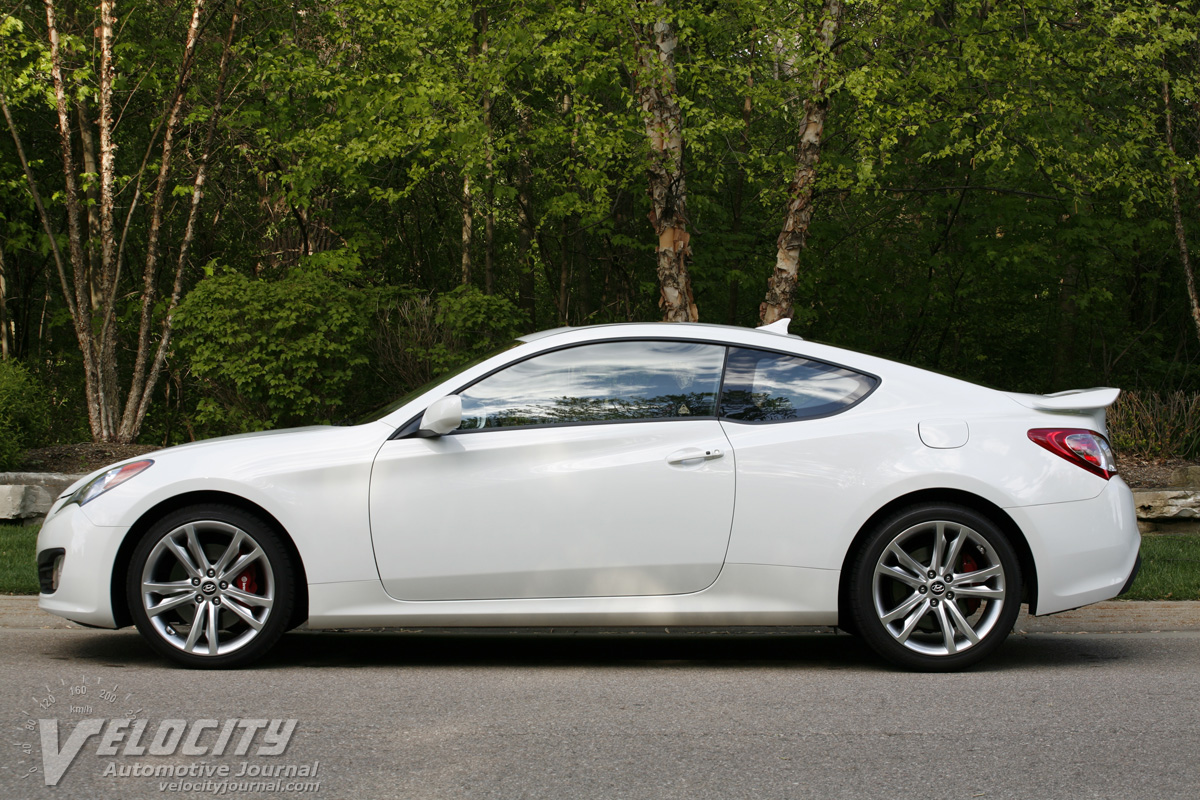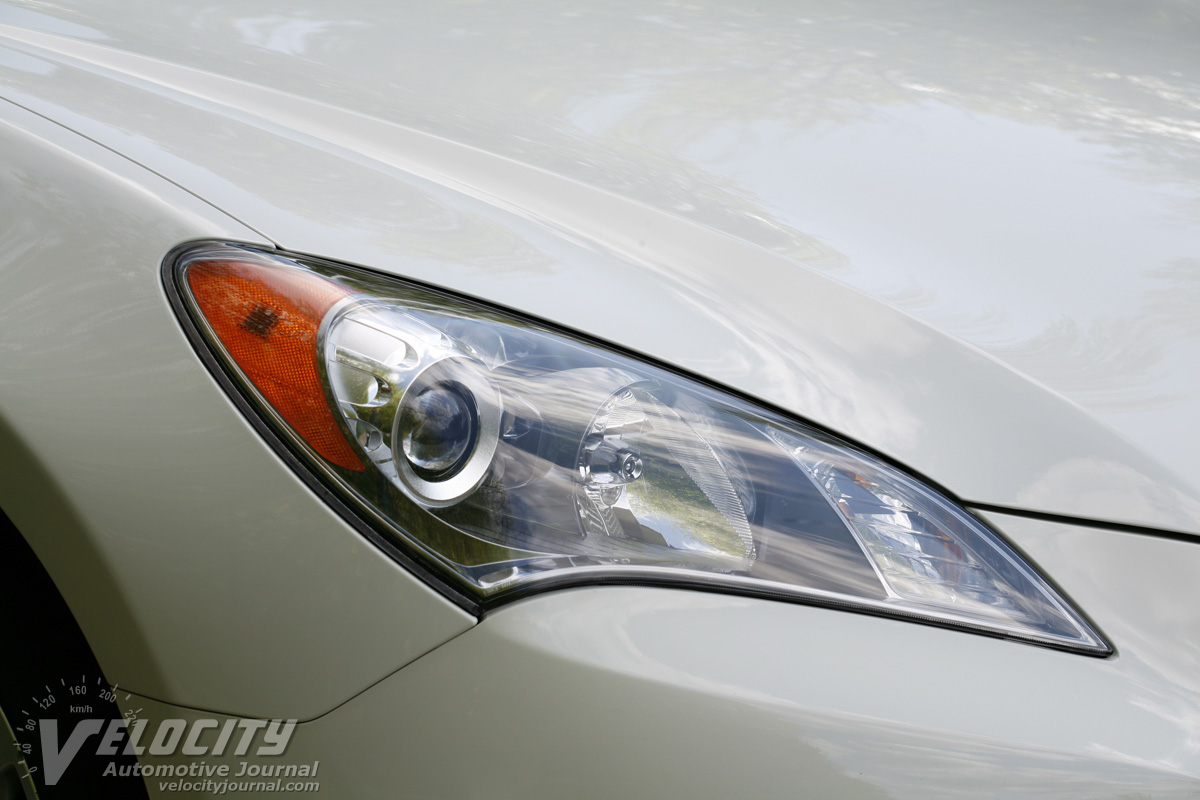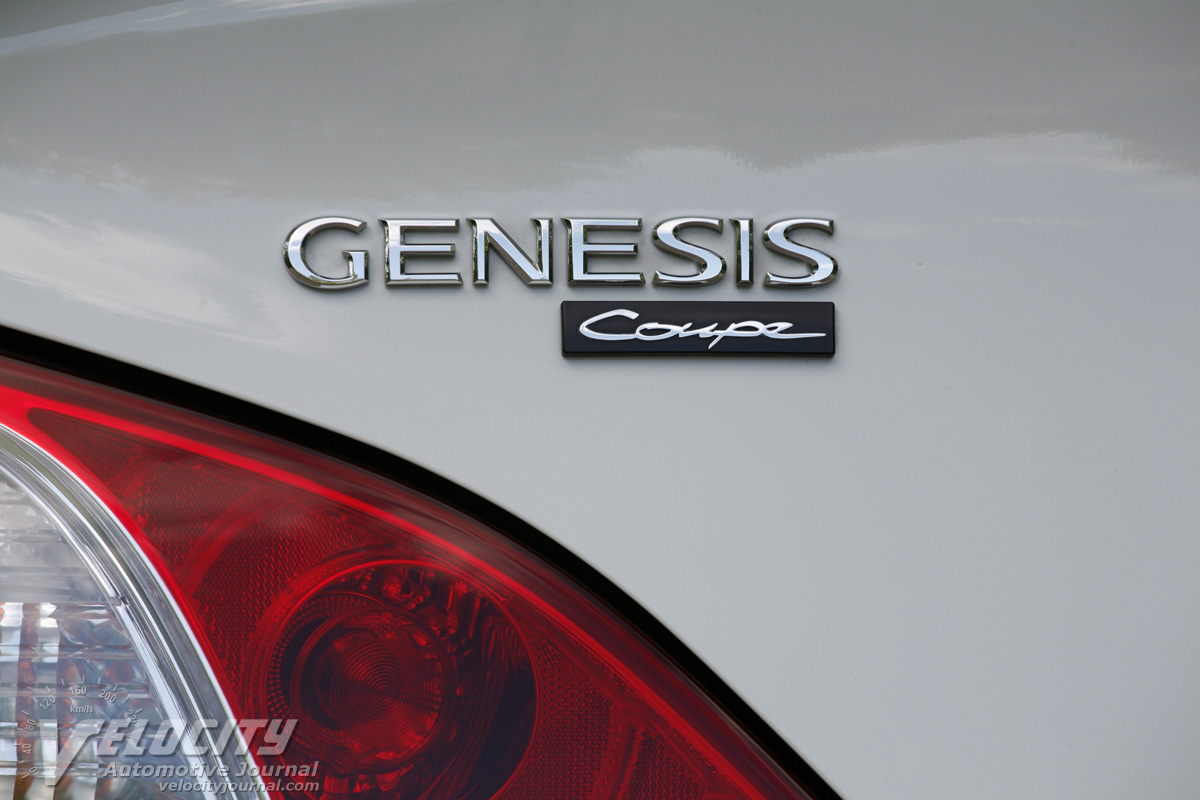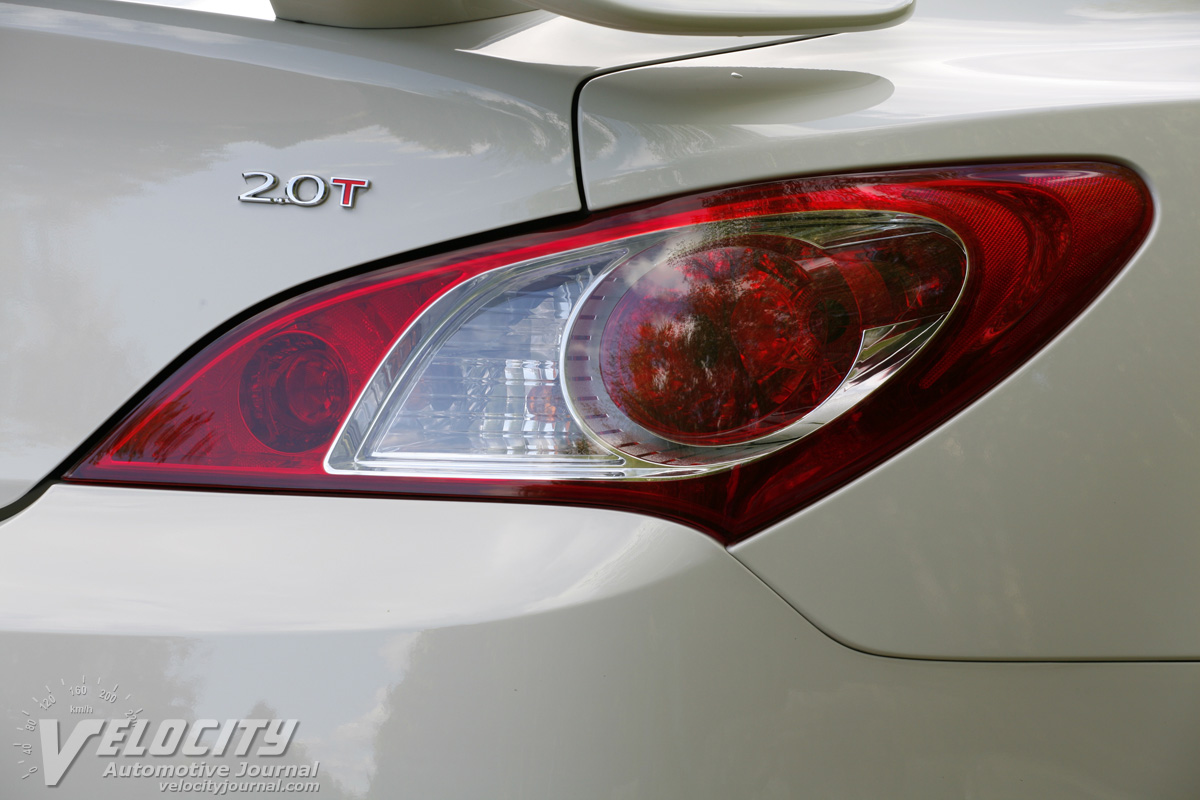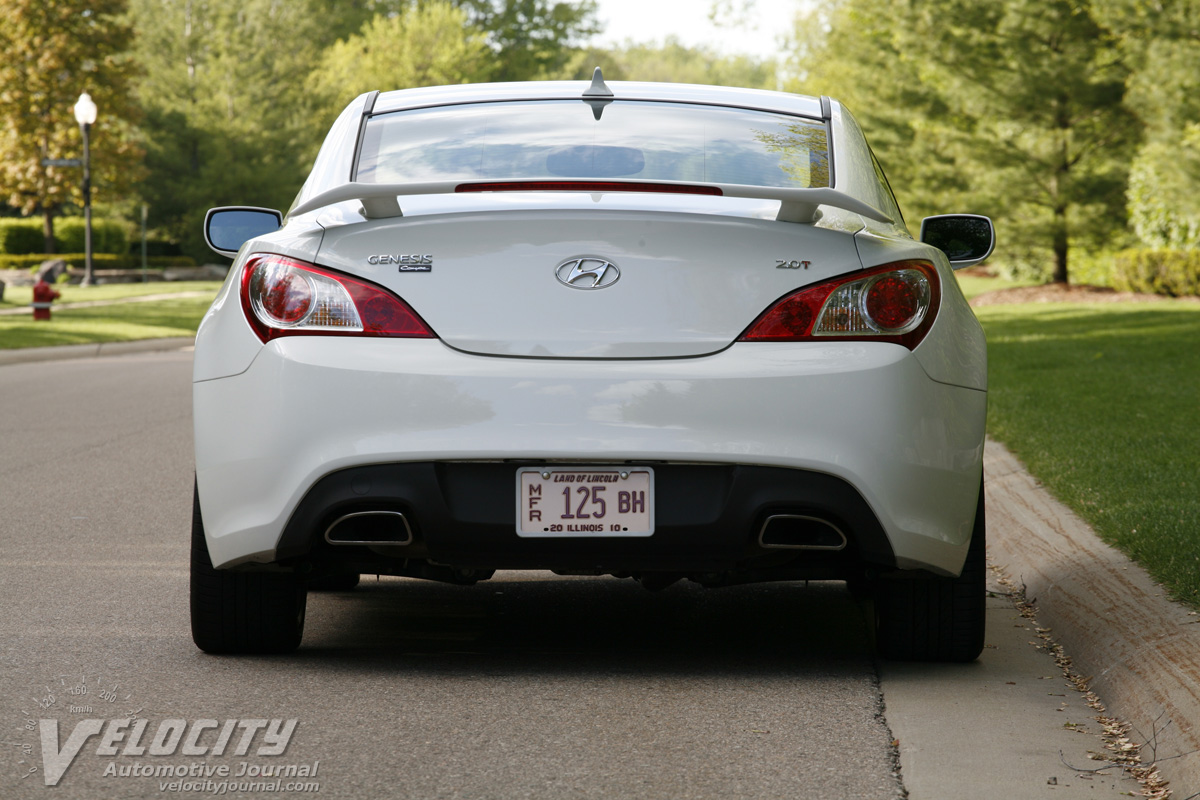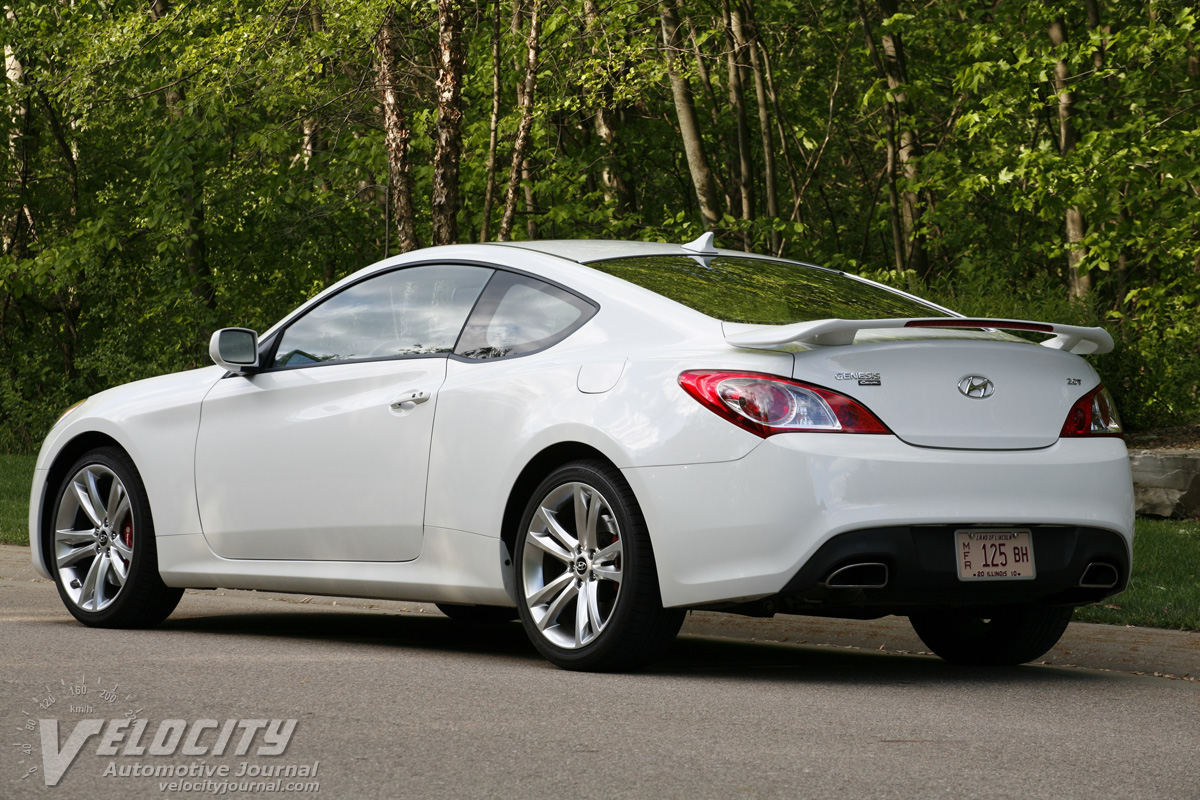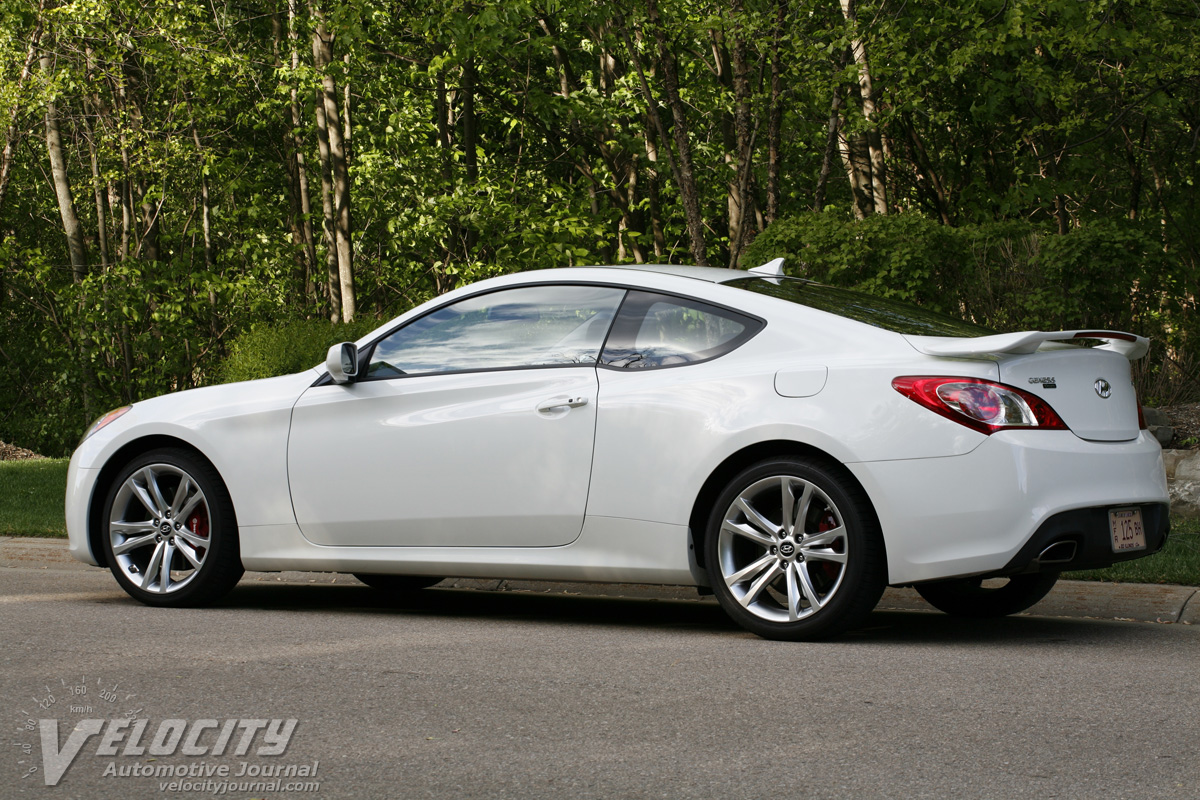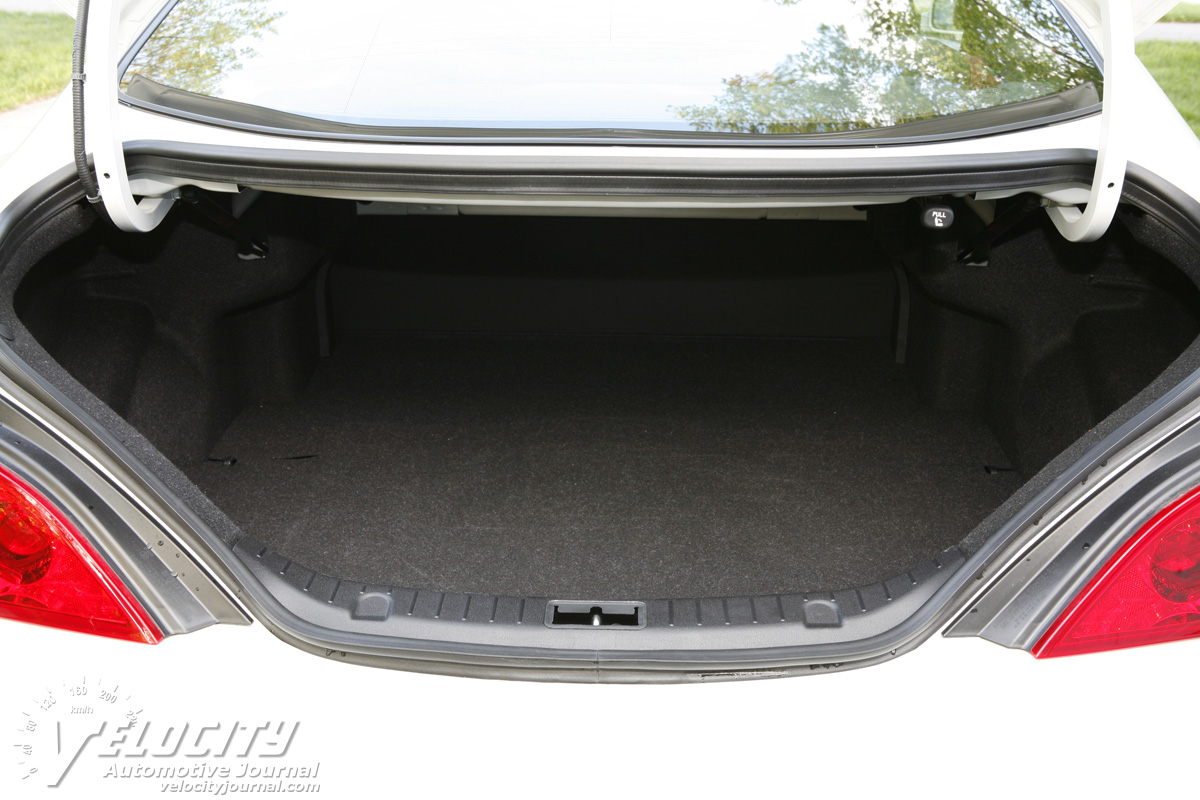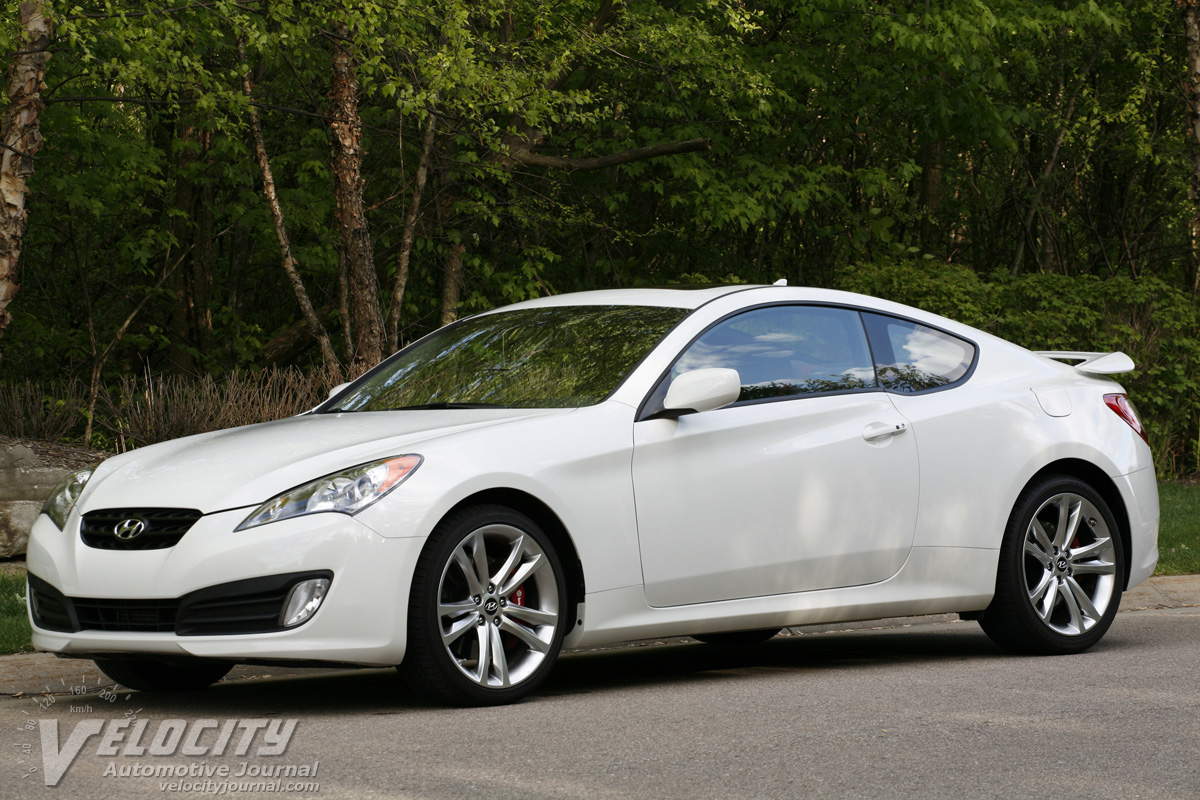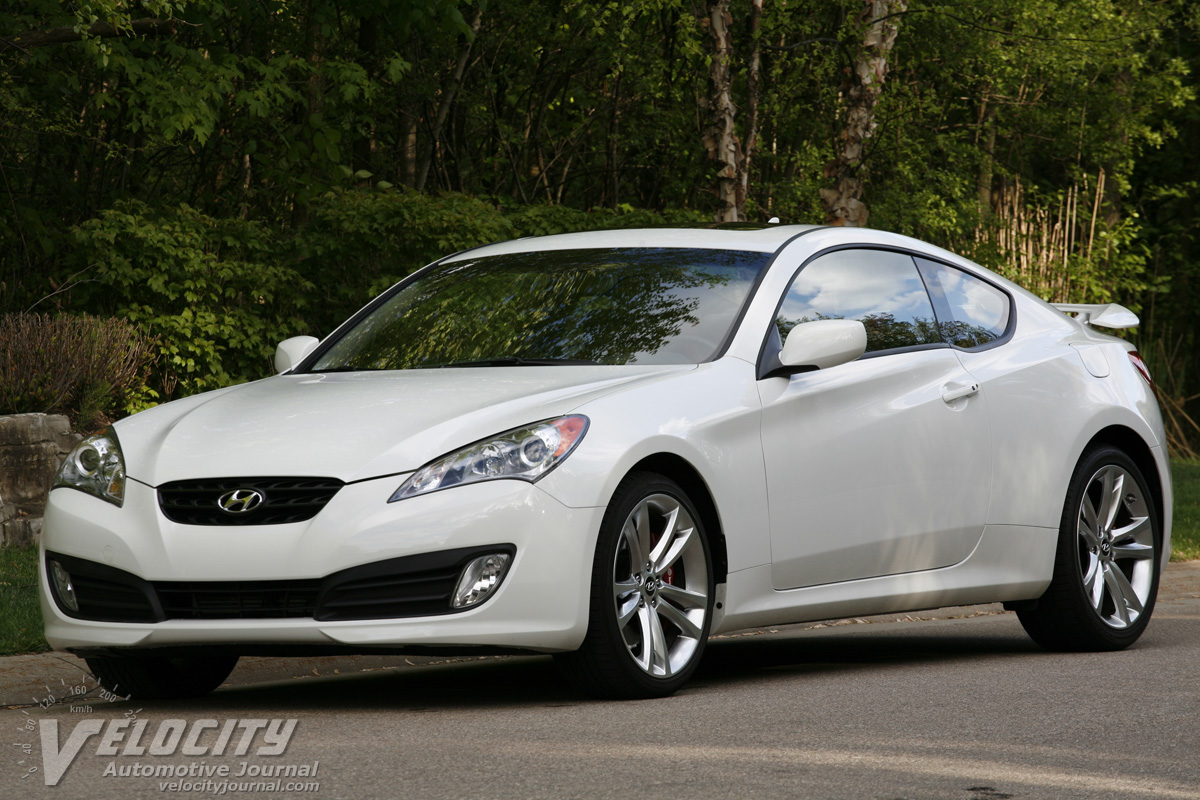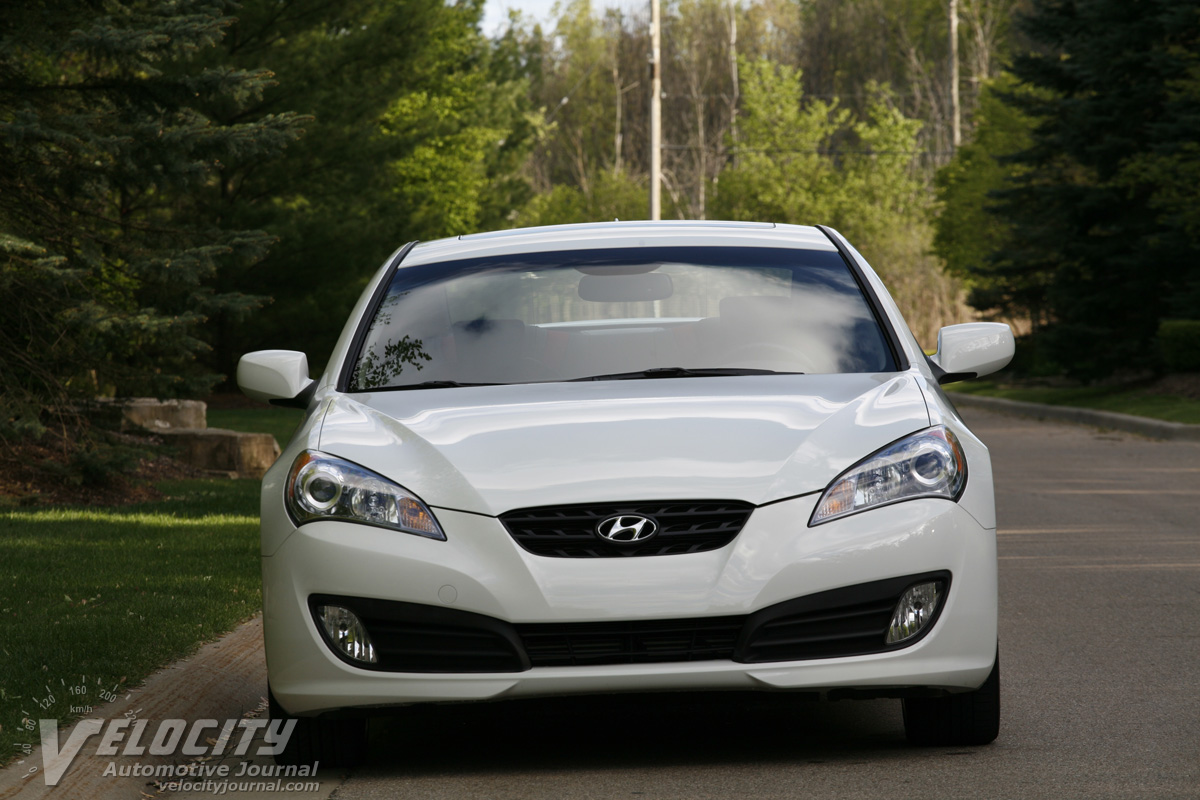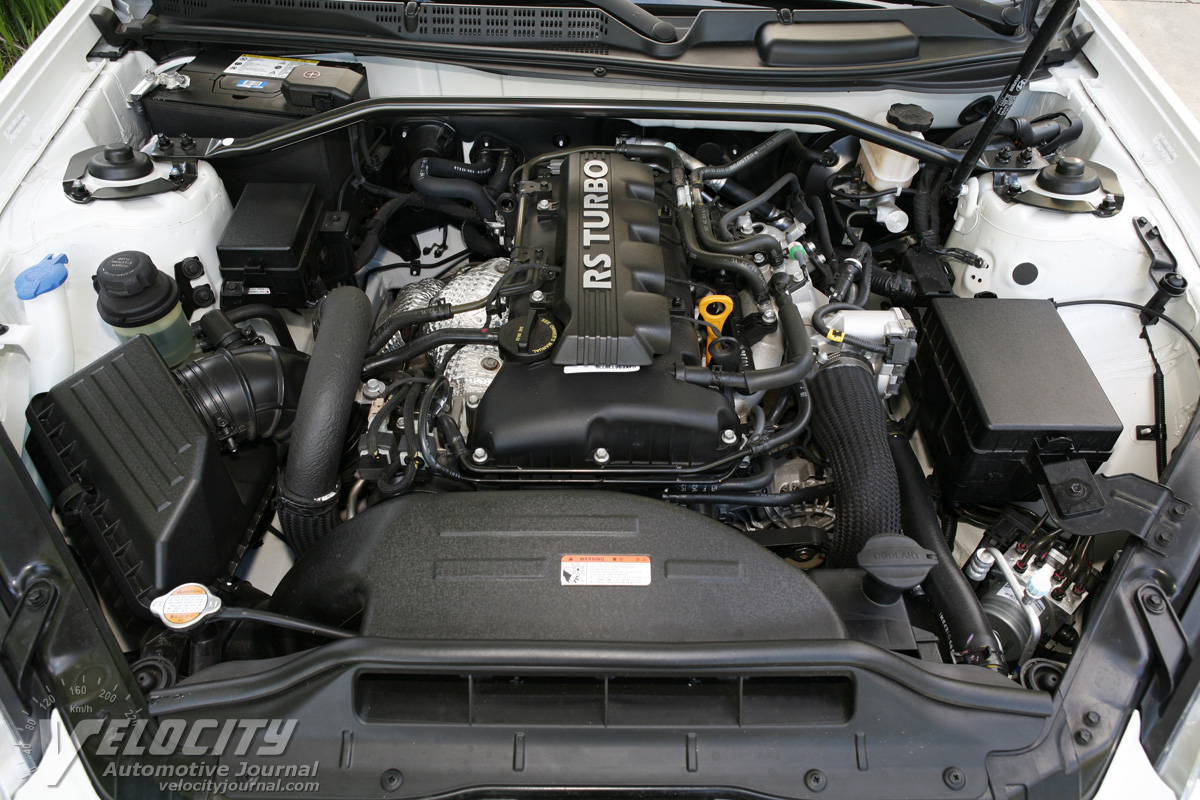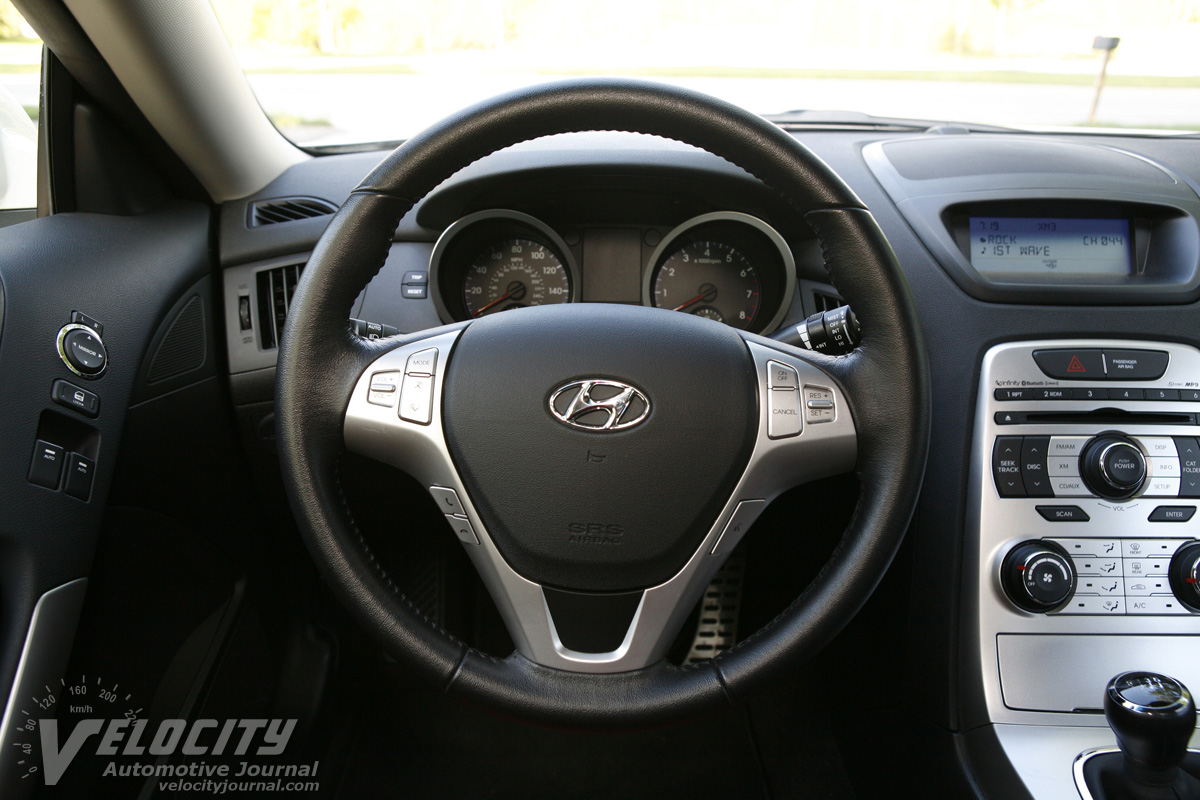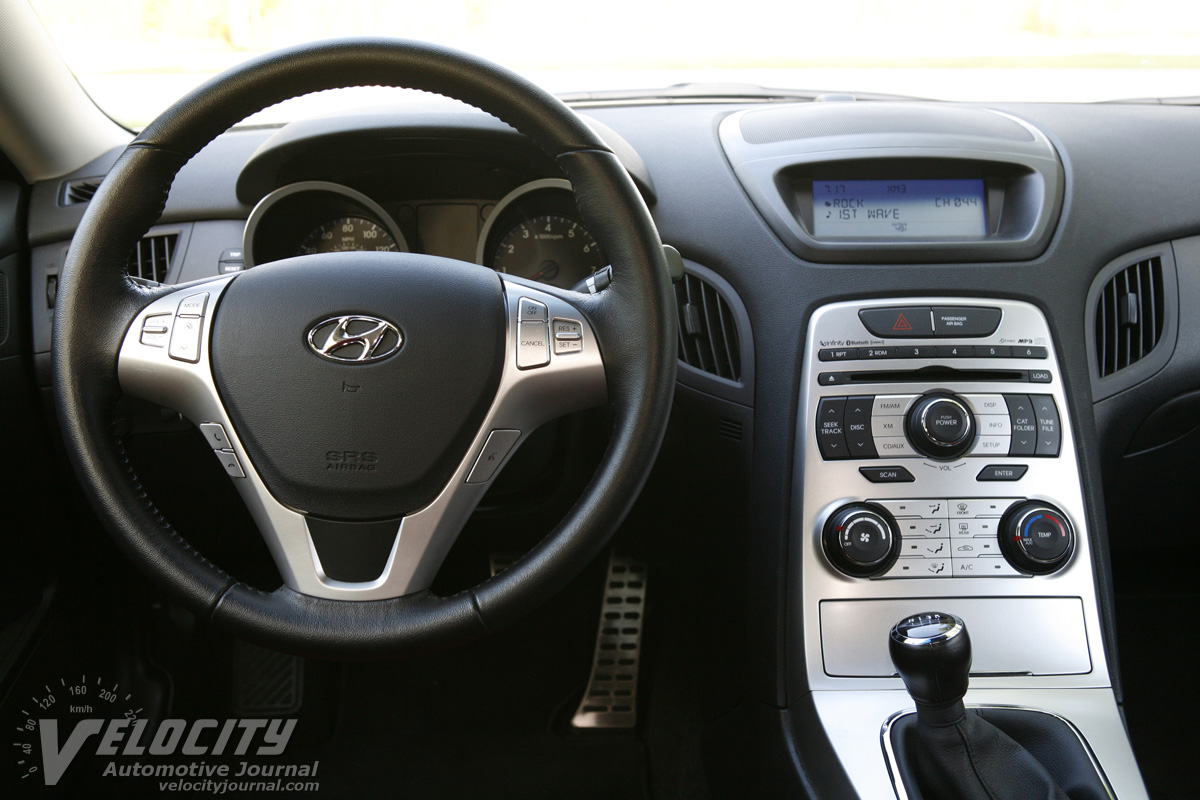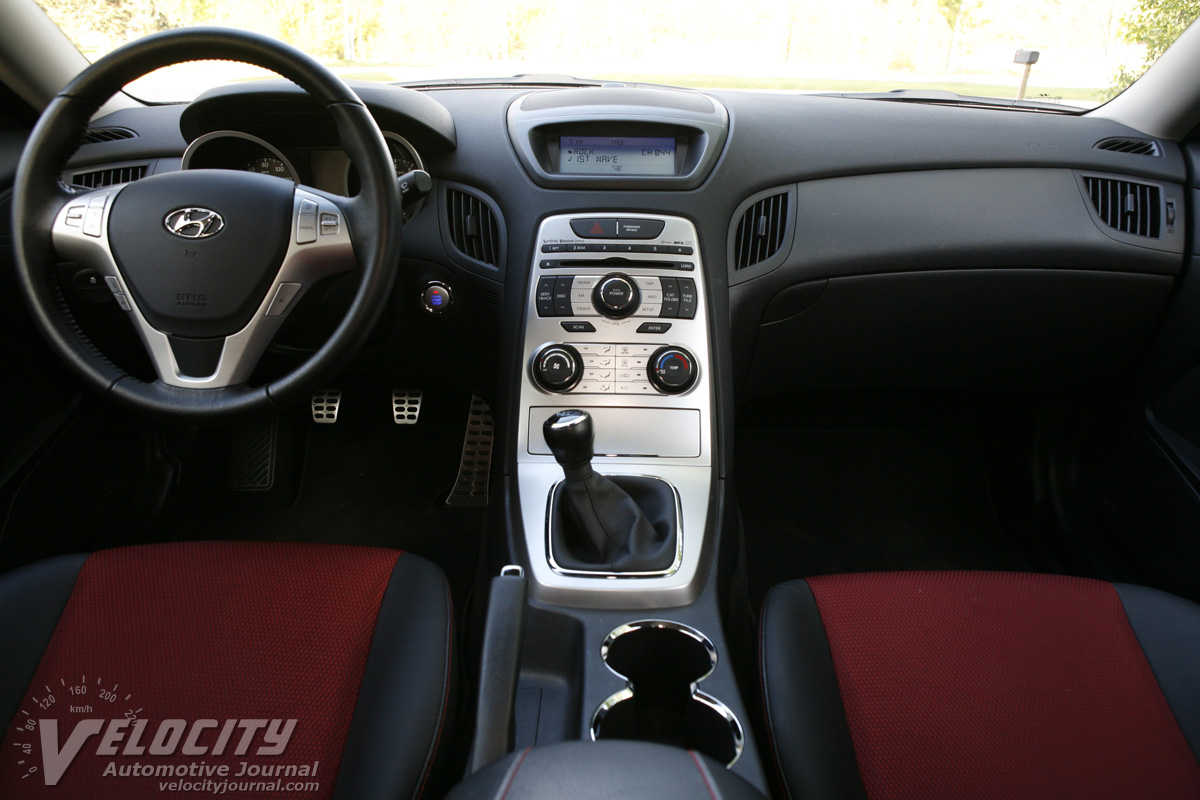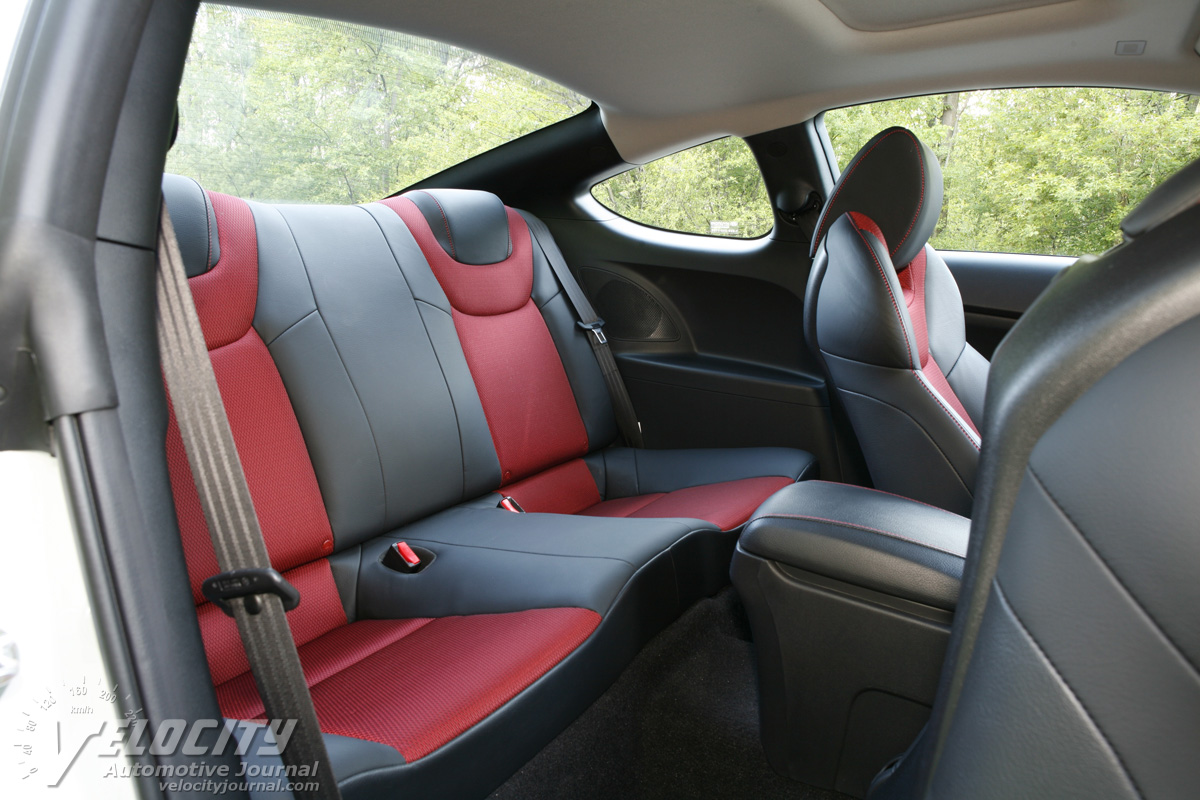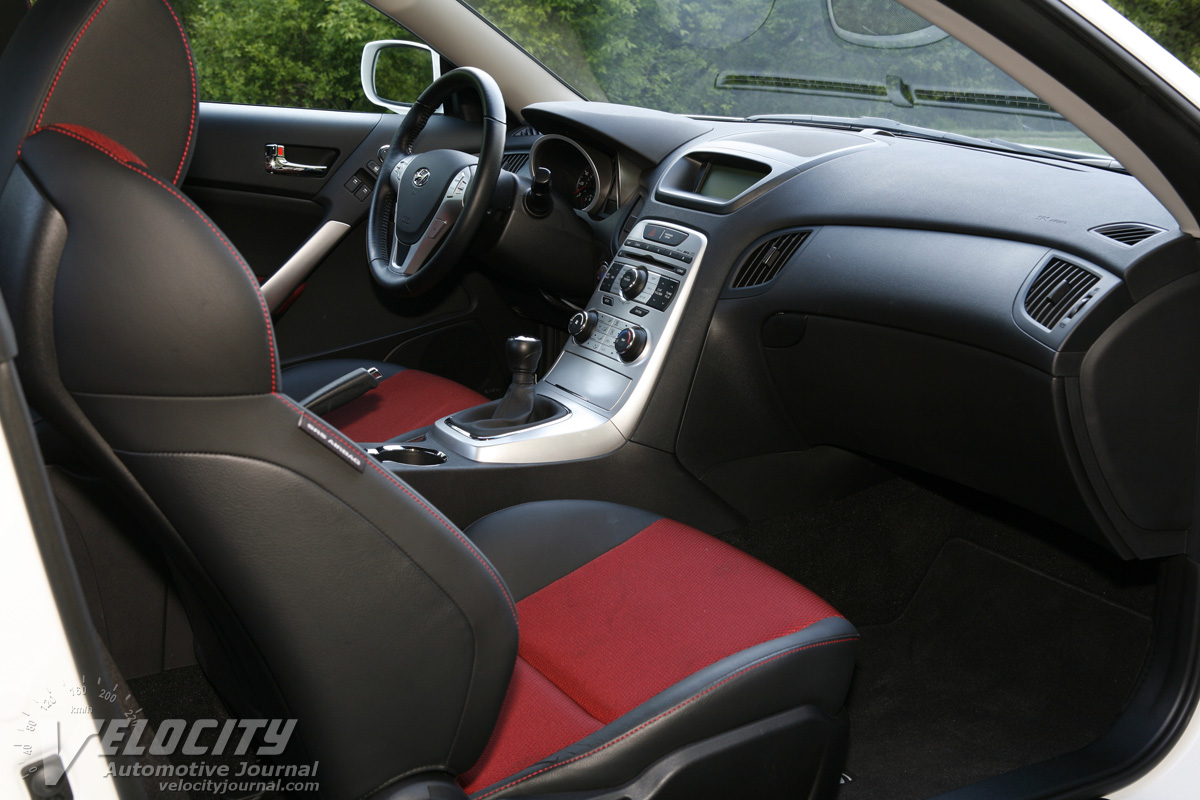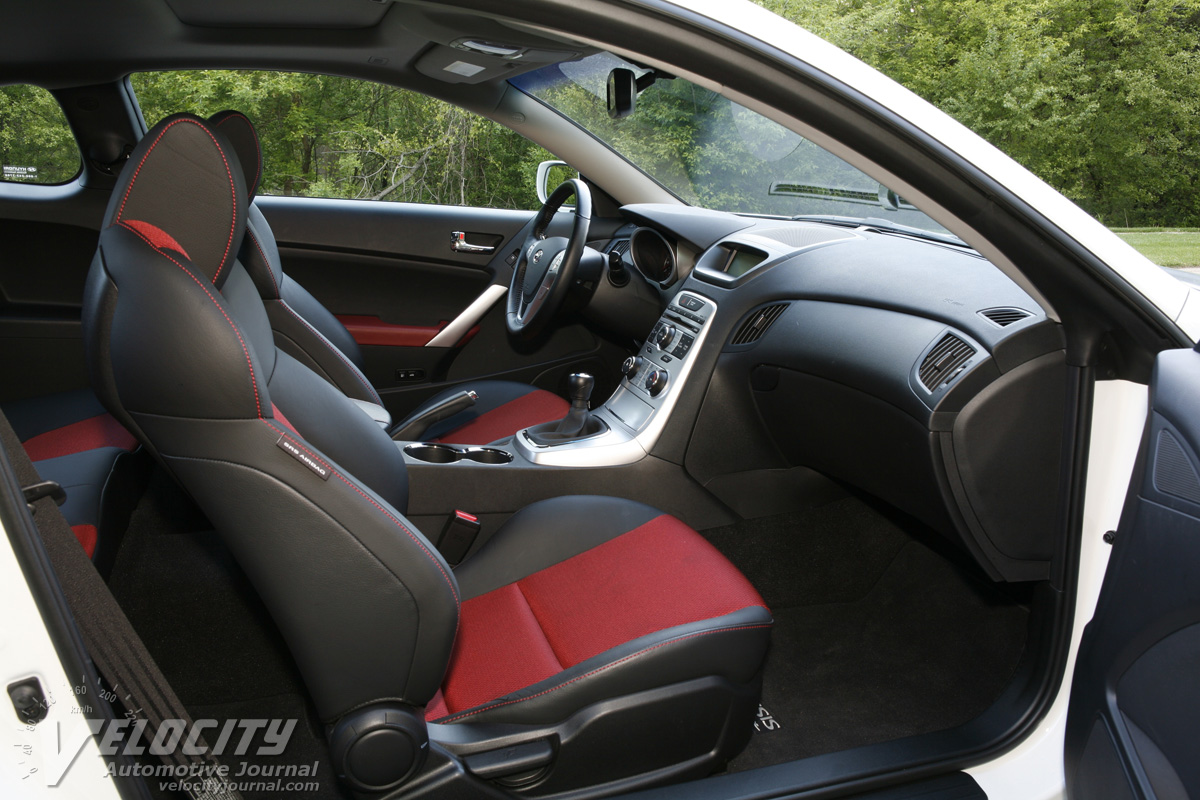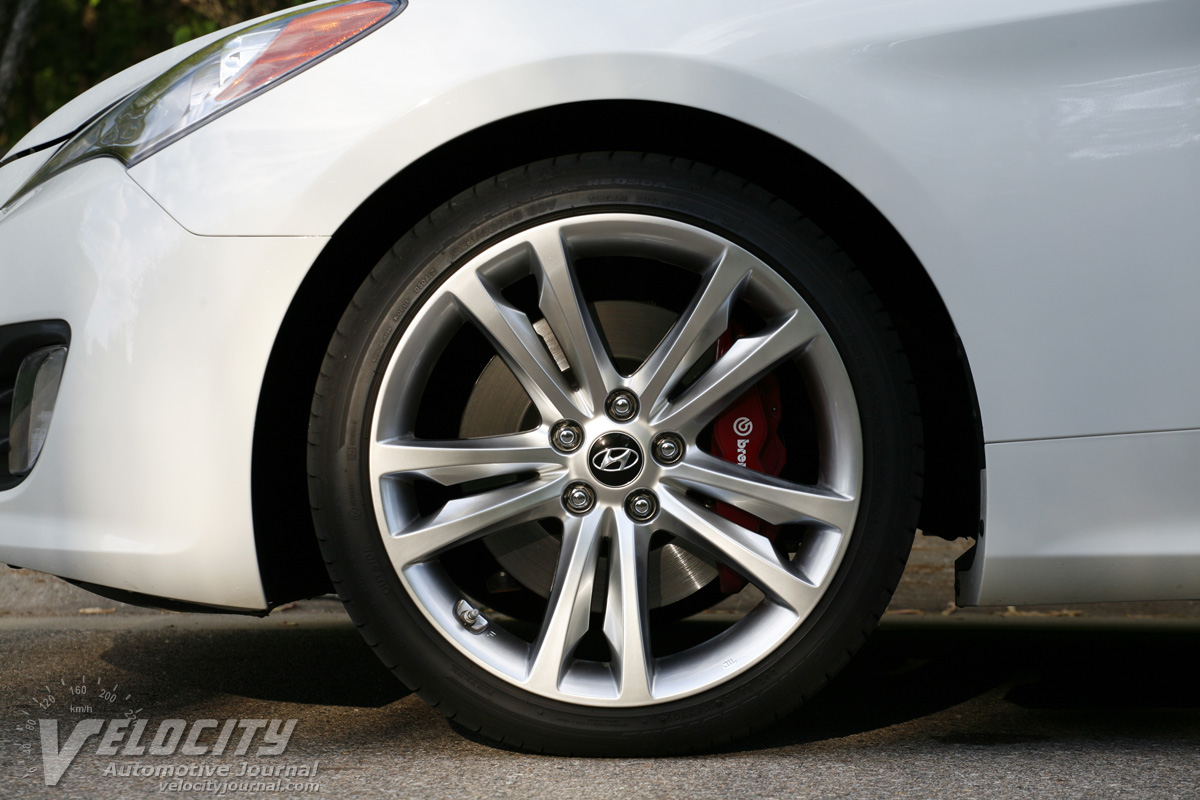2010 Hyundai Genesis Coupe 2.0T Track Edition
05/13/2010
Shahed Hussain
Hyundai's rapid transformation into a mainstream brand has led it to expand into new market segments. Despite having the affordable Tiburon sport coupe in its lineup, Hyundai never made much headway against its Japanese and American competition. The new Genesis Coupe is a complete departure from its predecessor, trading a FWD platform for a rear-drive chassis. When equipped with the V-6, the Genesis Coupe is an alternative to the Camaro, Mustang, and 370Z, but the entry-level 2.0T competes with the front-drive Civic Si, Mazdaspeed3, and Golf GTI.
We tested the Genesis Coupe 2.0T Track Edition, a performance-oriented trim level also available with the 3.8L V-6. A 6-speed manual is standard, and a 5-speed Shiftronic automatic is optional. An entry-level 2.0T starts at $22,000 and rises to $26,750 for the Track Edition we tested. Pricing for the base V-6 model starts at $25,000 and tops out at $31,000. Among the standard performance upgrades specific to the Track Edition are Brembo brakes, Xenon HID headlamps, 19-inch alloy wheels with P225/40YR19 (front) and P245/40YR19 (rear) tires, cloth/leather seats, limited-slip differential, and aluminum pedals. A stripped-down version of the Track Edition is the lower cost R-Spec ($23,750), which deletes the rear spoiler and some interior convenience features, and adds a track-tuned suspension. As an inexpensive track day or autocross racer, the R-Spec is the most competition-focused Genesis Coupe.
Befitting its position as the bargain performance model, the Track Edition gets a basic interior with minimal embellishments. The dark gray dashboard contrasts with the matte silver on the center stack; chrome accents on shifter bezel and cupholders add some visual dazzle to the interior. Within the deeply inset speedometer and tachometer are smaller gauges for fuel level and coolant temperature. Following the counterintuitive trend in many current turbocharged cars, no turbo boost gauge is available. Integrated on the steering wheel spokes are controls for cruise, audio and Bluetooth. Aside from the soft-touch dashboard, most other interior panels are hard plastic. Overall build quality is above average, with tight panel fits and consistent gaps.
Seats specific to the Track Edition are upholstered in black leather with red cloth inserts; matching red armrests adorn the door panels. The textured cloth effectively kept us from sliding around in the seats. The power driver's seat is appropriately supportive with prominent thigh and torso bolsters, plus adjustable lumbar support. On a 300-mile road trip, the multi-adjustable driver's seat proved to be exceptionally comfortable. The front passenger seat only has the typical 4-way manual adjustments. Heated front seats trimmed in brown or black leather are available on V-6 models.
Pressing the start/stop button on the dashboard brings the engine to life with gruff rumble; the key fob slips into a slot hidden behind a flip-up lid on the center stack. Hyundai's 2.0-litre turbo is optimized to boost low-RPM torque instead of peak horsepower. Maximum torque of 223 lb-ft. occurs at a low 2,000 RPM, while the horsepower plateaus at 210-bhp at 6,500 RPM. Taking off in first gear can be tricky, as the car surges forward near the torque peak at 2,000 RPM. Power comes on progressively to about 6,000 RPM, after which it tapers off as revs approach the 6,500 RPM redline. The 2.0L revs reluctantly for a small displacement inline-4, sounding surprisingly harsh near redline. Insufficient powertrain isolation allowed engine vibrations to be felt through the steering wheel rim and via the rubber-topped aluminum pedals.
The standard 6-speed manual has short-throw gear lever topped by a chrome-rimmed leather knob. Shifter actuation is annoyingly notchy, impeding fast gearchanges; skip-shifting from sixth to fourth is difficult to do consistently. Even worse, accidentally slipping into reverse from neutral is too easy, as there is no detent to separate reverse from the forward gears; an audible beep and a big "R" that lights up on the instrument panel warns when reverse is selected. Clutch take-up is abrupt, making smooth acceleration from a stop more difficult than it should be. After a few days, we became acclimated to the quirks of the gearbox, but the optional 5-speed automatic available in the base 2.0T and 2.0T Premium may be less aggravating for daily use.
Hyundai fitted a 14.9:1 steering ratio for only 2.7 turns lock-to-lock. The engine speed-sensitive hydraulic power assist is remarkably heavy at parking lot speeds, but lightens up considerably on the highway. Road textures are dulled by the lifeless steering, which lacked the tactile feedback we expected. While the fast steering aids agility, we noted excessive kickback over bumps, requiring quick corrections to keep the Genesis Coupe in its intended path; the nervous steering over less than pristine roads soon became tiresome.
Among sport coupes in its class, Brembo brakes are a rarity, yet Hyundai equipped the Track Edition model with 13.4 in. (front) and 13.0 in. (rear) diameter rotors with 4-piston calipers from the renowned Italian brake supplier. ABS and stability control are standard. With superb feel and a rock-solid pedal, the Brembo brakes are reason enough to consider the Track Edition package. Sticky Bridgestone RE050A tires: 225/50-R19 (front) and 245/40-R19 (rear) on 19-inch alloy wheels is an added bonus. The Genesis Coupe's suspension layout is the typical MacPherson struts, dual lower links, dampers, and a stabilizer bar in front. The rear suspension consists of a 5-link design with dampers, and a stabilizer bar. The Track Edition gets larger diameter stabilizer bars: 25 mm/22 mm diameter (front/rear); stiffer springs and damper tuning are also part of the package.
Considering its track focus, the Genesis Coupe's stiff suspension is understandable, yet difficult to tolerate for everyday driving. On typical pitted Michigan roads, the jittery, bouncy ride borders on unacceptable. At low speed, the stiff springs and dampers cause the undesirable impact harshness. Over frost heaves and undulations, the rigid suspension unsettles the chassis, requiring frequent steering corrections. Most customers will be better served with the standard suspension with its more compliant spring and damper tuning.
As Hyundai's entry level sports car, the Genesis Coupe 2.0T is a gallant effort, but doesn't quite measure up to the Ford Mustang and Chevrolet Camaro, which offer V-6 engines with 300+ horsepower for about the same price. Even when equipped with the V-6, the Genesis Coupe has no compelling advantage versus its American competition, and the slightly more expensive Nissan 370Z is a far more competent sports car than the Hyundai. Nonetheless, this is Hyundai's first attempt at a rear-drive coupe, and if the impressive new Sonata is any indication, Hyundai will just keep refining the Genesis Coupe until they get it right.

